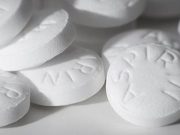Tag: IBD-
Malnutrition Often Seen in Patients Treated for IBD
Active disease, smoking tied to higher likelihood of screening positive
Inflammatory Bowel Disease Phenotypes Vary by Race, Birthplace
Foreign-born patients more likely to be diagnosed with UC and less likely to have early-onset disease, severe disease
Changes in Biochemical, Hematological Parameters Seen Before IBD Diagnosis
Widespread significant changes identified that occur up to eight years before Crohn disease, three years before ulcerative colitis
Histologic Inflammation With IBD Tied to Serious Infections
Authors say achieving histologic remission for both Crohn disease and ulcerative colitis may reduce the risk for serious infections
Higher Visceral Adipose Tissue May Need Higher Infliximab Levels for IBD Remission
Both visceral adipose percentage and infliximab levels independently tied to steroid-free deep remission
Inflammatory Bowel Disease Increases Risk for Later Arrhythmias
Findings seen for inflammatory bowel disease overall, as well as individual diseases
ACG: Prophylactic Low-Dose Aspirin in Pregnancy Does Not Increase IBD Activity
Findings seen among pregnant patients with inflammatory bowel disease
ACG: Intestinal Ultrasound Monitoring Cuts Time to Treatment Change in IBD
Patients receiving intestinal ultrasound monitoring also achieved clinical remission earlier
Transcutaneous Auricular Vagus Nerve Stimulation Beneficial in Pediatric IBD
Clinical remission achieved in some patients with Crohn disease or ulcerative colitis; reduction seen in fecal calprotectin levels versus baseline
Inflammatory Bowel Disease Tied to Higher Risk for Gout
Risk for gout even higher in patients with Crohn disease and ulcerative colitis who undergo intestinal resection














